Reflecting on the Journey and Looking Ahead

Over the last three weeks, we have been exploring some of the many benefits of kindness, both for others and for ourselves. The Dreemport part of the kindness challenge concludes with this post, but the kindness community is just beginning. I hope you have found value from the kindness challenge and collaboration.
Although the Dreemport Challenge and collaboration is ending, I will continue the kindness challenge daily until March 31st (Sunday). I invite you to consider continuing in the challenge if you can. It is entirely optional and unrelated to the Dreemport collaboration.
I hope you continue to contribute to the kindness community. I have appreciated and valued everyone's contributions, perspectives, and opinions, you would greatly enrich the kindness community.
There is no obligation or commitment required; your level of involvement is entirely up to you. If you have any ideas, thoughts, or suggestions on shaping the kindness community, I welcome them wholeheartedly.
Future Collaborations and Opportunities

As we continue to develop the kindness community, I'd like to explore future collaborations and opportunities. If you have any ideas, please share them. I'm not very familiar with Tokenomics and monetization on Hive, but it would be great if, in the future, we could partner with a community or sponsor to potentially offer some kind of incentive for community involvement.
Even further down the line, creating a "Kind" coin/token could be considered. One can dream, can't they? With that in mind, let's reflect on what we've learned about kindness over the past 3 weeks.
Kindness Makes Us Happier

Being kind makes us feel good and benefits both us as individuals, and society as a whole. Kindness triggers the release of chemicals in our brain that make us feel happy, strengthen our relationships, and improve our mood. The chemicals released in our brain when we practice kindness include:
- Oxytocin: Often referred to as the "love hormone" or "bonding hormone," oxytocin plays a role in social bonding, trust, and overall positive social interactions.
- Serotonin: Known as the "feel-good neurotransmitter," serotonin contributes to feelings of well-being and happiness.
- Dopamine: Linked to the brain's reward system, dopamine helps regulate mood, motivation, and pleasure.
- Endorphins: Our body's natural painkillers, endorphins are also associated with feelings of euphoria and well-being.
These chemicals help us feel happy when we are kind. By regularly being kind, we become happier and create a positive community. Simple acts like smiling, giving compliments, and helping others can spread happiness.
It's also important to be kind to ourselves by being positive, grateful, setting boundaries, and taking care of ourselves. Being compassionate towards ourselves not only boosts our well-being but also helps us be kinder to others.
Kindness, Cortisol Levels, and Aging
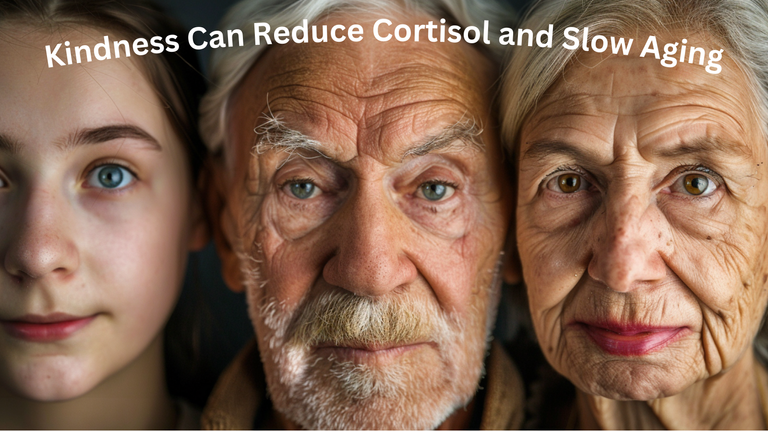
Understanding cortisol's role in the body and its connection to stress is essential for maintaining overall health and well-being. Key Points:
- Cortisol Effects:
- Affects metabolism, immune function, and aging.
- High levels from chronic stress linked to weight gain, heart issues, and cognitive decline.
- Kindness and Cortisol:
- Kindness associated with lower cortisol levels.
- Reduces negative impacts of stress.
- Managing Cortisol:
- Strategies include mindfulness, exercise, and social support.
- Helps safeguard physical and mental health.
- Impact of Chronic Stress:
- Harms brain regions involved in memory and stress regulation.
- Kindness Benefits:
- Boosts positive feelings.
- Helps lower cortisol and slow aging.
- Community Impact:
- Simple acts of kindness benefit both individuals and communities.
Managing stress and cortisol levels is key for physical and mental well-being. Prioritizing strategies to manage cortisol levels, such as practicing kindness and stress-reducing activities, not only enhances personal well-being but also fosters a healthier community environment.
Kindness Can Make You More Attractive

A study in China showed that being seen as kind makes people more attractive. Participants were shown photos of strangers and some were told positive things about them, others were told negative traits. Here are the key points:
- "Halo" Effect: Associating positive traits like kindness with people made them appear more attractive.
- Personality Matters: Positive traits like kindness enhances physical attraction, negative traits like laziness have the opposite effect.
- Likability and Attractiveness: Being well-liked correlates with perceived attractiveness by others.
- Symmetry and Beauty: Symmetrical facial features are considered attractive.
Other research shows that people are considered more attractive if they show compassion, like kindness, selflessness, mindfulness, and empathy.
Beauty plays a vital role in societal perceptions. We are naturally drawn to compassionate people because we all seek love, understanding, and emotional connection.
Kindness Can Help Prevent Suicide

Kindness plays a major role in suicide prevention and mental health. Simple acts of kindness, such as smiling, can positively impact somebody who may be contemplating suicide. Kindness has numerous positive effects on mental health and well-being.
Unfortunately, suicide rates are high and kindness plays a huge role in preventing loneliness and isolation that can contribute to suicidal thoughts. Kindness can instill hope and positivity, benefiting both the giver and receiver.
The Fundamental Attribution Bias
The Fundamental Attribution Bias can increase suicide rates by solely blaming internal factors like personal weaknesses. Recognizing external factors like societal pressures is crucial in preventing suicide.
Kindness plays a key role in reducing suicide rates by offering support and understanding, showing that people care, and providing hope to those struggling. Being kind can make a significant difference in someone's life and help prevent suicide.
Key Points:
- Kindness can prevent suicide by positively impacting mental health.
- Simple acts of kindness, like smiling, can make a difference.
- Loneliness and isolation are linked to suicidal thoughts.
- Kindness instills hope and positivity for both parties.
- Resources are available for suicide prevention and mental health support.
Promoting kindness not only benefits individuals' mental health but also contributes to a supportive community for those in need.
Kindness Reduces the Risk of Alzheimers and Dementia

Kindness plays a crucial role in maintaining brain health and reducing the risk of dementia, as emphasized by the Alzheimer Society of Canada. Social connections and acts of kindness can positively impact mental well-being and overall health.
Here are the key points from the blog post:
- Regular social interactions help lower stress levels and enhance mood.
- Making time for volunteering and joining social groups can boost self-esteem.
- Maintaining old friendships and building new ones through various activities is beneficial.
- Accepting new experiences and staying mentally active can lower the risk of cognitive decline.
Incorporating kindness and social engagement into daily life not only benefits others but also contributes to one's own well-being by potentially reducing the risk of cognitive decline and dementia.
Kindness Can Reduce Inflammation

Inflammation is the body's response to injury or infection, which can be short-term (acute) or long-lasting (chronic). Kindness, such as acts of compassion and gratitude, can reduce inflammation by lowering stress levels and releasing hormones that promote healing. Here are some key takeaways:
- Kindness Benefits: Acts of kindness can lower pro-inflammatory factors like C-reactive protein.
- Social Connections: Building strong relationships through kindness can increase hormones that regulate inflammation.
- Positive Effects: Positive thoughts and meditation can lead to beneficial physiological changes.
- Healthy Habits: Practicing self-care activities like yoga and meditation can reduce stress and enhance well-being.
Incorporating kindness into daily life not only reduces inflammation but also fosters a healing environment for overall wellness.
Understanding Addiction and Kindness
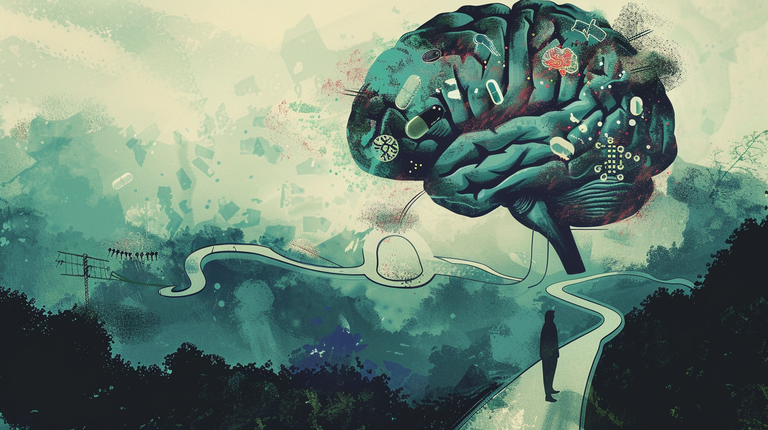
Addiction is a brain disorder where someone becomes dependent on substances or behaviors, changing the brain and making them feel like they need it to feel normal. Kindness plays a crucial role in combating the stigma of addiction by promoting empathy and understanding. Here are key points from the blog post:
- Addiction as a Brain Disorder: It's not just about willpower; it involves changes in the brain's reward system.
- Role of Kindness: Reduces stigma, creates support networks, and fosters compassionate treatment.
- Importance of Support: Supportive environments and community help break the cycle of addiction.
- Preventing Relapse: Helping others in recovery increases the chance of avoiding relapse by 40%.
- Overcoming Shame and Stigma: Kindness and understanding can help individuals accept themselves and seek help.
Kindness is a powerful force in healing from addiction, offering hope and support to those in need.
Kindness Can Increase Your Income!

Kindness isn't just about feeling good; it can also help you earn more money, as studies suggest. Here's how:
- Kind people tend to have higher incomes and more financial success.
- Altruistic individuals are generally happier, have more children, and see increased income over time.
- Generosity can lead to faster income growth and new job opportunities.
- Being kind in business boosts productivity, reduces stress, and fosters creativity.
- Ultimately, kindness pays off both personally and financially.
Kindness and Sports Performance
Kindness plays a crucial role in enhancing sports performance. Being kind can help athletes improve focus, confidence, and stress management. Key points:
- Being kind improves focus, confidence, and stress management in athletes.
- Kindness positively impacts mental abilities, teamwork, and endurance.
- Self-compassion is essential for athletes to handle failures effectively.
- Creating a supportive environment through kindness leads to improved athletic performance and overall success.
- Encouraging kindness in sports programs fosters social interactions and builds a caring athletic community.
Incorporating kindness into the sports realm not only benefits individual athletes but also cultivates a positive and inclusive environment for everyone involved.
The Benefits of Self Kindness
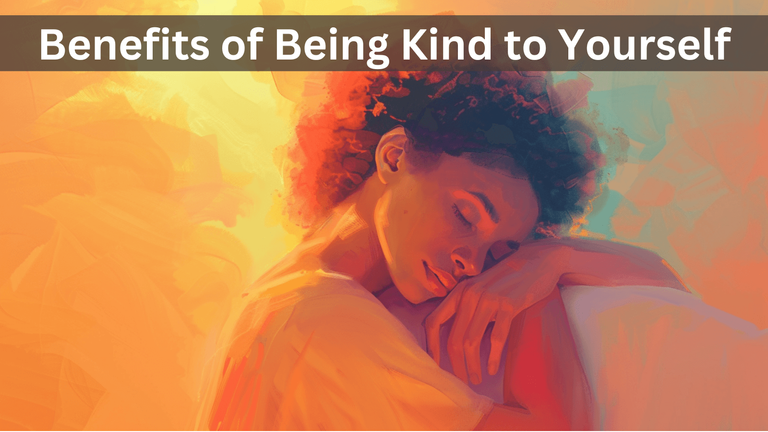
Self-kindness is crucial for mental and emotional well-being. It involves treating ourselves with compassion, acceptance, and encouragement.
Here are the key takeaways:
- Self-Kindness: Being understanding and supportive to oneself, practicing positive self-talk, self-care, and setting boundaries.
- Benefits: Improves mental health, resilience, and overall well-being. Reduces anxiety, depression, and stress.
- Practices: Acknowledge pain, practice mindfulness, be kind to oneself, engage in self-care, challenge inner criticism, connect with others, embrace imperfections, practice self-forgiveness, cultivate gratitude.
- Improvement: Identify inner critic, focus on health and well-being, do things that bring happiness, practice mindfulness exercises.
Let's remember that self-kindness is self-love; it leads to happiness and allows us to be more compassionate towards others.
Kindness Can Help to Retrain Neural Pathways in the Brain
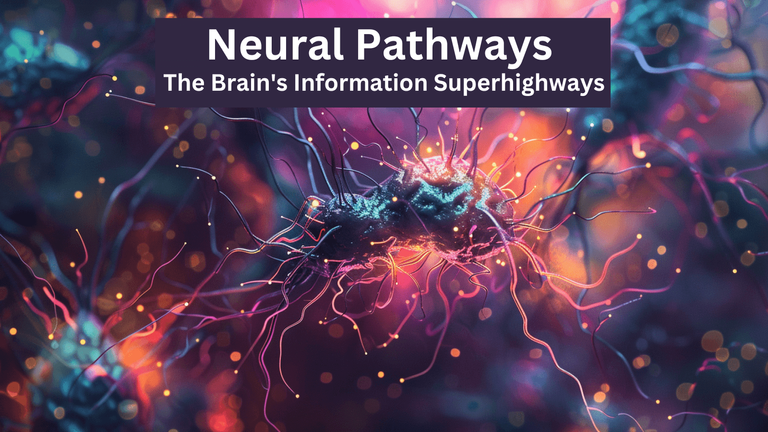
Kindness is a powerful force that can help to retrain neural pathways in the brain and nurture our well-being
- Kindness rewires neural pathways.
- Mindfulness practices positively affect brain structure.
- Acts of kindness enhance happiness and well-being.
- Compassion boosts emotional control, empathy, and motivation.
- Cultivating kindness brings mental and neural benefits.
By incorporating kindness into our daily lives, we not only transform ourselves but also create a more positive and fulfilling environment for everyone.
Kindness and Gut Health

Kindness is not only good for our minds and emotions but also for our gut health. Research suggests that being kind can improve the bacteria in our gut, which affects our emotions and overall health. Here are some key points to remember:
- Kindness can reduce stress and improve emotional well-being.
- Positive social interactions can lower inflammation and improve mood.
- Acts of kindness release hormones that make us feel good and can indirectly impact gut health.
- Being kind often leads to healthier lifestyle choices like eating well and exercising.
Let's remember to spread kindness not only for our own well-being but also for a healthier world.
The Role of Kindness in Cancer Care

Kindness in cancer care is crucial for patients and their families. Here are key points:
- Compassionate care uplifts spirits and aids in the healing process.
- Small acts of kindness from healthcare providers improve patient well-being.
- Kind gestures reduce stress, enhance recovery, and shorten hospital stays.
- Technology in treatment is essential, but empathy and support are equally important.
- Kindness from medical staff improves patient satisfaction and pain management.
Remember, every act of kindness matters in the journey against cancer. You matter!
Kindness Can Improve Language Skills

Kindness goes beyond niceness; it boosts our language skills. Here are the key points:
- Being kind can enhance our vocabulary through social interactions.
- Trying new experiences broadens our perspectives and language abilities.
- Acts of kindness in different cultural settings can expand our linguistic knowledge.
- Empathy towards others can lead to discovering new words and expressions.
- Reading about diverse experiences helps us learn new words and viewpoints.
Embracing kindness daily nurtures positive relationships and enriches our language skills.
Kindness Improves Sleep

Kindness is not only good for others but also the key to better sleep quality and overall well-being. Kindness plays a key role in improving sleep quality. Practicing kindness reduces stress, fosters stronger social connections, and leads to deeper and uninterrupted sleep.
Key Takeaways:
- Practicing kindness reduces stress and anxiety levels, leading to better sleep.
- Strong social connections through kindness contribute to improved mental well-being and better sleep quality.
- Acts of kindness promote deeper and uninterrupted sleep.
- Being kind reduces overthinking and triggers positive emotions, enhancing sleep.
- Self-compassion helps manage emotions, calm nerves, and improve sleep quality.
Practicing daily kindness can enhance both our sleep and general well-being. Simple acts of kindness have the power to positively influence the quality of our rest. Incorporating kindness into our daily interactions can result in a more restful and revitalizing sleep experience.
Kindness Relationships and Family Dynamics
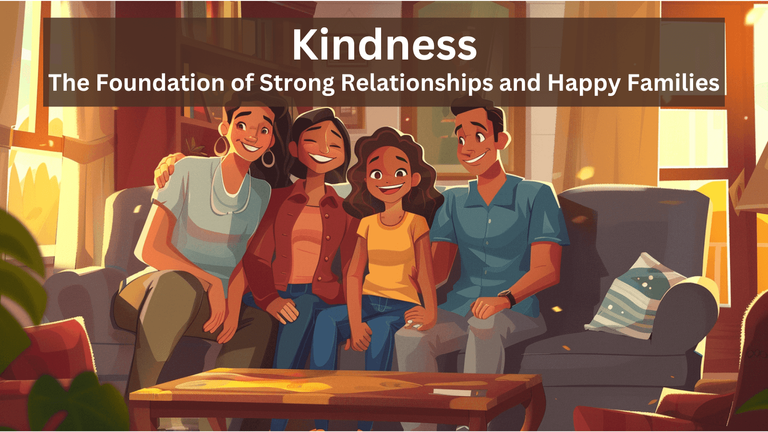
Kindness is essential for building strong relationships and creating a happy family environment. It boosts happiness, reduces stress, and improves trust and empathy among family members. Here are the key points:
- Kindness boosts happiness, reduces stress, and enhances trust and empathy within families.
- It improves self-confidence, self-esteem, and life satisfaction.
- Kindness promotes better mental health, reduces anxiety, and makes us better listeners.
- It fosters cooperation, helps in conflict resolution, and combats prejudice.
- Kindness creates a sense of safety and security, encourages forgiveness, and inspires future generations.
- Kindness triggers the release of hormones that promote bonding and trust in our brains.
- It influences daily interactions by promoting mindfulness, forgiveness, and a sense of safety.
Remember, being kind not only brings families closer but also contributes to a more caring and connected society. Let's spread kindness to make the world a better place for everyone
Continuing the Kindness Journey
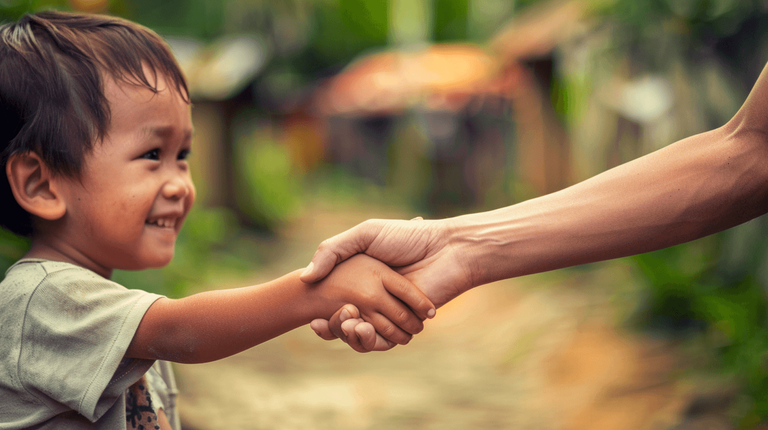
I hope you enjoyed the collaboration as much as I did. It was a real honor and privilege to partner with @dreemport this month. I will be creating a post about my experiences in the not-too-distant future and writing about this experience.
I will again continue with a brief kindness fact each day on D.Buzz and give a couple of suggestions of some kind acts you may wish to draw inspiration from. I will continue this until the last day of March and then I will regroup and recoup!
Thank you once again to all the wonderful Dreemers and everyone else who has participated so far. I look forward to learning more about what you are doing in your corner of this global village in terms of kindness, hearing about your successes, ideas, and any feedback or suggestions you may have.
Above all, I'm interested in knowing what you enjoyed the most about this challenge and what you found most challenging.
My deepest thanks to @dreemsteem @dreemport and everyone who has participated in or helped with the collaborative challenge. #dreemforlife
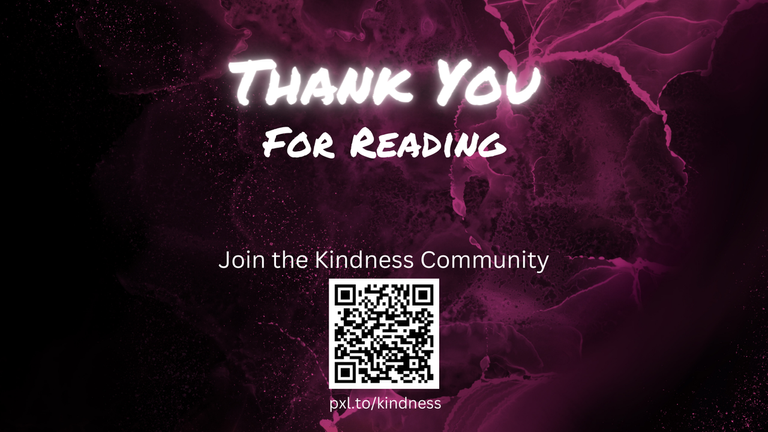
Images created using Minjourney, Dal-E, and Canva. I hold a commercial license for each.
#kindness #cwh #dreemport #dreemkindness #ecency #dreemforlife #hivekindness #kindnesschallenge #kindnessmatters #pob #wellness